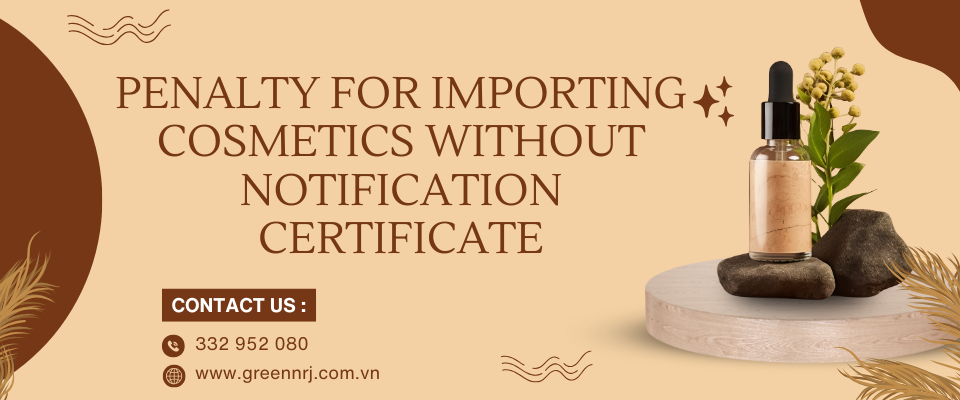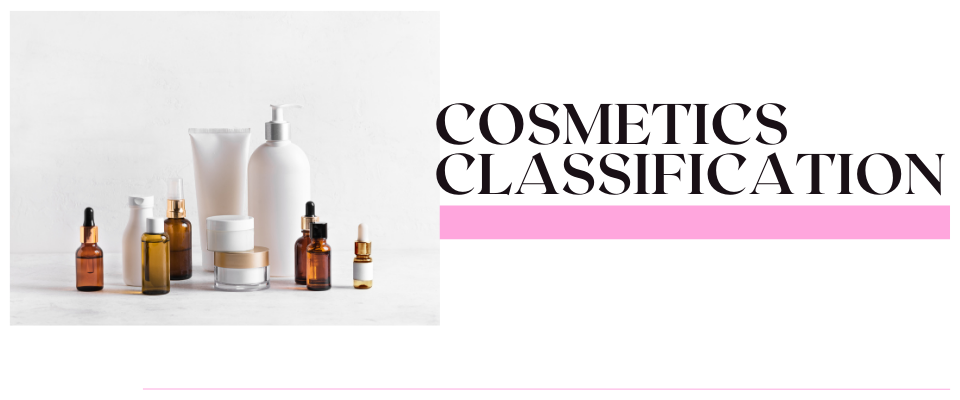- If you have any questions, please contact us!
- +84 965 624 065
- info@greennrj.com.vn

How to Import Shampoo into Vietnam (2025): Proven Guide
May 19, 2025
How to Import Hair Serum into Vietnam: Import Regulations & Step-by-Step Guide 2025
May 21, 2025Importing hair dye into Vietnam in 2025 offers a lucrative opportunity for foreign cosmetic brands, international manufacturers, and global distributors. As personal grooming trends continue to rise and Vietnamese consumers increasingly embrace premium hair coloring products influenced by K-beauty and J-beauty, the demand for imported hair dye is growing rapidly.
However, successfully importing hair dye into Vietnam requires strict compliance with local cosmetic regulations. Foreign companies must follow a detailed process that includes Cosmetic Product Notification (CPN), accurate HS code classification, Vietnamese labeling compliance, and customs clearance procedures.
In this comprehensive 2025 guide, we provide a step-by-step overview of how to import hair dye into Vietnam, covering essential requirements such as product registration, labeling rules, import duties, and the full set of customs documentation needed for legal market entry.
1. Cosmetic Product Notification (CPN) for Hair Dye in Vietnam
Before importing or distributing hair dye in Vietnam, foreign brands must register their products through the Cosmetic Product Notification (CPN) system regulated by the Vietnam Ministry of Health (MOH). This is a mandatory step for all cosmetic products, including hair coloring items, to ensure compliance with Vietnamese cosmetic regulations.
Why is CPN Required for Hair Dye?
Obtaining a valid CPN certificate is a legal requirement under Vietnam’s cosmetic law. The CPN process ensures that imported hair dye products comply with:
-
Ingredient safety standards under the ASEAN Cosmetic Directive (ACD)
-
Vietnamese labeling regulations, including proper translations and usage instructions
-
Health and safety requirements to protect Vietnamese consumers from harmful substances
Important: Hair dye products without a valid CPN will be rejected by Vietnam Customs at the border, regardless of shipping documents or import contracts.
Legal Framework for Cosmetic Registration in Vietnam
The regulatory basis for the Cosmetic Product Notification process includes:
- Decree 93/2016/ND-CP: This decree establishes the comprehensive legal framework for managing cosmetic products in Vietnam, including import processes and the mandatory cosmetic notification Vietnam requirements.
-
Circular No. 29/2020/TT-BYT – Provides detailed procedures for CPN submission and approval
-
Circular No. 32/2019/TT-BYT – Updates on cosmetic notification rules and modifications
Who Can Apply for the CPN in Vietnam?
Only a Vietnamese legal entity is permitted to submit the CPN dossier to the Ministry of Health. Foreign companies cannot apply directly. Eligible Cosmetic Notification Holders (CNH) include:
-
Vietnamese distributors or trading companies licensed to deal in cosmetics
-
Foreign-invested companies (FIEs) in Vietnam with cosmetic trading in their business license
-
Local compliance agents or service providers offering cosmetic registration services
Foreign hair dye brands must appoint a Vietnamese CNH to act as their legal representative for the CPN process.
Required Documents for CPN Application
Below is a list of mandatory documents for registering hair dye through the CPN system:
| Document | Description |
|---|---|
| Online CPN Form | Submitted via the official Vietnam National Cosmetic Notification Portal |
| Power of Attorney (POA) | Issued by the brand owner or manufacturer, must be notarized, consular legalized |
| Certificate of Free Sale (CFS) | Confirms the product is legally sold in its country of origin |
| Full Ingredient List | Using INCI names, including exact percentages or concentration ranges |
| Product Description | Details such as form (cream, gel, liquid), usage, and any marketing claims |
| CNH Business License | Copy of the Vietnamese entity’s Enterprise Registration Certificate (ERC) |
CPN Validity for Hair Dye Products
-
A CPN certificate is valid for 5 years from the approval date
-
The same CPN can be used for multiple imports of the identical product
-
If there are changes to the formulation, packaging, product name, or label, a new CPN application is required
If you’re a foreign brand looking to import hair dye into Vietnam, the CPN registration is your first and most critical step to market entry. Failure to comply can result in delayed shipments, fines, or rejection at customs.
2. HS Code and Import Duties for Hair Dye
Understanding the correct HS code and applicable import duties is crucial for foreign brands planning to import hair dye into Vietnam in 2025. Accurate tariff classification not only ensures proper customs clearance but also determines whether you can benefit from Free Trade Agreement (FTA) preferential rates.
Suggested HS Code
Hair dye products are typically classified under the following Harmonized System (HS) code:
| HS Code | Description | VAT (%) | MFN Duty (%) | Normal Import Duty (%) |
|---|---|---|---|---|
| 3305 | Preparations for use on the hair | |||
| 33059000 | – Other types | 10% | 20% | 30% |
-
VAT (Value Added Tax): 10% applies to all cosmetic products upon import.
-
MFN (Most Favored Nation) Tariff: 20% if no FTA applies.
-
General Duty: 30% for imports from non-WTO or non-preferential countries.
Preferential Import Duty Rates under FTAs
Vietnam is part of numerous Free Trade Agreements (FTAs), which may significantly reduce or eliminate import duties for hair dye. To apply for these rates, a valid Certificate of Origin (C/O) must be submitted.
| Exporting Country/Region | Preferential Duty | Applicable Trade Agreement(s) |
|---|---|---|
| South Korea | 5% or 0% or 12% | AKFTA (5%), VKFTA (0%), RCEP (12%) |
| China | 0% or 12% | ACFTA (0%), RCEP (12%) |
| United States | 20% | Not eligible – No FTA between Vietnam and USA |
| ASEAN Countries | 0% or 12% | ATIGA (0%), RCEP (12%) |
| Japan | 0% or 12.7% | AJCEP (0%), VJEPA (0%), CPTPP (0%), RCEP (12.7%) |
| European Union (EU) | 5% | EVFTA (5%) |
Note: Always submit a valid Certificate of Origin (C/O) at customs to enjoy reduced tariffs under the applicable trade agreement. Without a C/O, the full MFN (Most-Favored-Nation) import duty of 20%–30% may apply.
3. Customs Clearance Procedures for Hair Dye
To legally import hair dye into Vietnam, companies must follow a multi-step customs clearance procedure. Below is a breakdown of required documents and estimated processing timelines.
Required Documents for Hair Dye Import
| Document | Purpose |
| Import Declaration |
Filed electronically via the VNACCS/VCIS system – the official e-customs platform in Vietnam
|
| Commercial Invoice | Specifies the value and transaction details between exporter and importer |
| Packing List | Details the quantity, packaging format, and contents of the shipment |
| Bill of Lading / Airway Bill | Transport document issued by the carrier (sea or air) |
| Cosmetic Product Notification (CPN) | Proof of product registration with Vietnam’s Ministry of Health |
| Certificate of Origin (C/O) | Required to claim preferential import tariffs under FTAs |
Note: All documents must match the product information declared in the CPN to avoid delays or rejections.
Clearance Timeline
| Step | Estimated Duration |
|---|---|
| E-declaration | Same day |
| Document review | 1–2 business days |
| Physical inspection (if required) | Additional 1 business day |
| Release of goods | Within 3 business days total |
Tip: Engage an experienced Vietnamese customs broker to avoid delays, especially if you’re importing cosmetics for the first time.
4. Labeling Requirements for Imported Hair Dye
Vietnam enforces strict labeling regulations for all imported cosmetic products, including hair dye. Compliance with these rules is critical to avoid customs rejection, fines, or product seizure.
Legal Basis for Hair Dye Labeling in Vietnam
-
Decree 43/2017/NĐ-CP on labeling goods in Vietnam
-
Decree 111/2021/NĐ-CP amending labeling regulations specifically for imported goods
Mandatory Elements:
| Label Element | Description & Requirements |
|---|---|
| Product Name | Commercial hair dye name as marketed to consumers |
| Brand Name | Trademark or brand under which the hair dye is sold |
| Intended Use | Clear usage statement, e.g., Hair dye for external use only |
| Usage Instructions & Warnings | Step-by-step application directions and safety warnings |
| Ingredients List | Complete list of ingredients using INCI names, arranged in descending order of concentration |
| Net Volume | Volume or weight of the product, e.g., 250ml, 500ml |
| Manufacturing (MFG) and Expiry (EXP) Dates | Clearly displayed using dd/mm/yyyy or mm/yyyy format |
| Batch Number | Production batch number for quality control and traceability |
| Country of Origin | Indicate origin, e.g., Made in USA |
| Manufacturer and CNH Information | Full name and address of the manufacturer and the Cosmetic Notification Holder (CNH) in Vietnam |
Label Format and Placement Requirements
-
Labels must be applied on retail packaging (not just shipping cartons or outer boxes)
-
Labels can be either printed directly on packaging or affixed as durable stickers resistant to moisture and abrasion
-
Sub-labels or stickers must not cover batch numbers, expiry dates, or QR/barcodes
-
Labels must be legible, clear, and in Vietnamese language to meet MOH regulations
Consequences of Non-Compliance
Failure to meet Vietnam’s hair dye labeling regulations may result in:
-
Customs clearance delays or rejection
-
Administrative fines imposed by customs or market surveillance agencies
-
Seizure or forced removal of hair dye products from the market
-
Damage to brand reputation and business operations
5. Conclusion
Importing hair dye into Vietnam in 2025 involves navigating regulatory compliance, CPN registration, HS code classification, FTA-based duty optimization, customs clearance procedures, and labeling rules.
To streamline the process, foreign brands are strongly advised to partner with local import-export service providers or legal compliance agents who understand Vietnam’s cosmetic import landscape. This ensures full legal compliance and minimizes costly delays at customs.
Need help importing hair dye into Vietnam?
Green NRJ offers end-to-end services, including:
- CPN registration support
- HS code consultation
- Certificate of Origin (C/O) preparation
- Customs clearance assistance
- Label translation and compliance checks
📩 Contact us today to simplify your hair dye importation into Vietnam.




